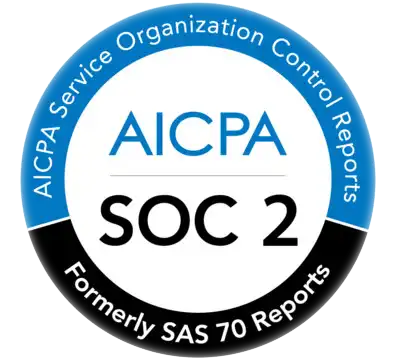With the implementation of the Corporate Transparency Act (CTA), the Financial Crimes Enforcement Network (FinCEN) added a vital tool to its arsenal – beneficial ownership reporting. Every business is legally obligated to file a beneficial ownership report. But why? Well, so FinCEN can use it to weed out what it calls “illicit actors” and ensure they’re not able to use very real and legitimate business structures to gain access to their criminal proceeds.
In other words, beneficial ownership reporting exists to prevent business-related financial crime. Let’s take money laundering as an example. The United States Department of Justice estimates that the amount of money laundered from drug trafficking alone is anywhere between $100 and $300 billion annually. Most of that money gets piped through legitimate businesses – created to serve as fronts – so it becomes spendable for criminals.
That’s the sort of financial crime that beneficial ownership reporting exists to stop. But how do these reports help? And what challenges still exist for FinCEN in the fight against illicit actors using legitimate businesses to hide their shady dealings? We explain all here, along with offering best practices to ensure your business information reporting is as accurate as possible.
How Beneficial Ownership Reporting Can Combat Financial Crimes
We’ve touched on one of the crimes FinCEN hopes to tackle with beneficial ownership reporting. Its goal is to gain more information about how companies, particularly limited liability companies (LLCs) and S Corporations, are structured to uncover illicit actors who might be using their businesses as cover. There are three ways the reporting makes this task easier for FinCEN.
Increased Transparency
The more FinCEN knows about a business and who’s operating that company, the better able it is to weed out the wrongdoers who use the business for illicit financial practices. Take LLCs as an example. Before the CTA came into effect in January 2024, an LLC didn’t have to report any information about beneficial owners beyond the main owner of the business. Think about what that means from a law enforcement perspective. A criminal could use somebody – perhaps even an unwitting patsy – to form a business and claim ownership. But behind the scenes, that criminal extracts most of the cash the business generates with FinCEN and other agencies being none the wiser unless they launch a full investigation.
The transparency delivered by business information reporting counters such situations. FinCEN now requires anybody who has at least a 25% ownership stake in a business – whether that’s direct or judged through the level of control they have over the business – to be reported as a beneficial owner. That means names, addresses, and a company’s ownership structure all come to light. That’s not a problem for a legitimate business. If anything, business information reporting reinforces the company’s legitimacy. But for those beneficial owners trying to hide behind a business structure to access illicit gains, FinCEN’s reporting structure casts a far harsher spotlight. They have to report themselves and their roles in their businesses. If they don’t, it may trigger FinCEN to investigate them.
Enhanced Due Diligence
Imagine you’re an existing or prospective business owner. An investor comes onto the scene claiming to be able to offer the money you need to grow. That money comes at a price – they want to take a 25% stake (or more) in your business in return for the investment.
It’s the sort of questionable business transaction that takes place every day in the United States, with such offers triggering a due diligence process in the receiving company. Investment scams of all types cost Americans $4.6 billion per year. That number includes business-related investments, so you, as a company owner, need to know as much as possible about a potential investor before going ahead.
Enter beneficial ownership reporting. To take a stake in your business, your prospective investor has to deliver the information the report requires. That means they put themselves willingly on FinCEN’s radar. Anybody who balks at that prospect throws up a massive red flag on which is written the message “I don’t want you looking into me.” So, not only can financial institutions use beneficial ownership reporting to identify potential criminality within a business structure, but you can use it to weed out false investors.
Tracing Proceeds of Crime
The biggest problem with the lack of reporting required for LLCs, in particular, relates to tracing the proceeds of crime. That’s why these business structures are so popular for money laundering. An illicit actor can lurk behind the ownership structure, pumping criminal money into the business and extracting it without leaving a trace. If that money gets moved between several businesses, the authorities quickly lose track of the flow of funds. The money could have gone anywhere.
It’s a stretch to claim that criminals will always be traceable now that beneficial ownership reporting is in place. But they’ll have a much harder time hiding what they’re doing. FinCEN can trace the beneficial owners of every business through which money passes hands. With its reporting at the ready, it can also look for patterns – such as names of beneficial owners across multiple businesses – to make better-informed assumptions about where money is really going.
Challenges and Limitations of Beneficial Ownership Reporting

It’s clear that FinCEN has a very good reason to implement beneficial ownership reporting. Still, the reports aren’t perfect mechanisms that will magically uncover all financial crimes. There are challenges and limitations that FinCEN – and you as a business owner – must overcome.
Incomplete Data
Beneficial ownership reporting is nothing without the data it’s intended to collect. FinCEN recognizes this, which is why it’s implemented a civil penalty of $500 per day on top of criminal penalties that include fines up to $10,000 and two years of jail time. Think of those penalties as incentives for a business owner to get the reporting right.
Still, incomplete data is going to be a problem. On your end, inaccurate business ownership reporting opens you up to FinCEN penalties. For FinCEN, the consequences are even worse – it’ll have to put more time than necessary into identifying beneficial owners so it can continue investigations into financial crime.
Complex Ownership Structures
You may have a business with one or two additional owners. Split down the middle 50/50, or another simple enough percentage split, and it’s easy to determine who owns what. That’s great – beneficial ownership reporting is straightforward for you and easily traceable for FinCEN.
Problems arise when the structure gets more complicated than that. For instance, maybe somebody owns only a couple of percent of a business outright but their decision-making power is such that the company basically follows their lead. That person is a beneficial owner under the CTA. And it’s these more obscure ownership structures that represent a challenge to FinCEN. Your task as a business owner is to figure out how many fingers are in your company pie (and how many of these fingers belong to each individual) so you can untangle your ownership structure. That situation is only going to get more complicated – for you and FinCEN – as your company grows. Deliberate obfuscation is even more of a problem for FinCEN and it has to untangle the web of ownership because the business information report doesn’t do it adequately.
International Cooperation
The CTA and the beneficial ownership reporting that stems from it apply to U.S. companies only. International companies that do business in the U.S. still have to complete a report, of course. They’ll be familiar with that because they had to file business formation documents to operate in America initially. However, that doesn’t change the fact that there’s a lack of standardization.
In other words, a non-domestic company doesn’t have to complete the same type of beneficial ownership reporting it must complete if it was based in the U.S. It may not even have to file any such documentation. Thus, a problem for FinCEN arises when it tries to validate ownership beyond its own reporting. The information it needs may not even exist and, even if it does, it could be tough to trace a beneficial owner based on the differing compliance obligations between countries.
Best Practices for Effective Beneficial Ownership Reporting

What can you do to help FinCEN as it tries to smash the financial crime rings that have used legitimate companies to launder money and commit fraud for decades? Following the best practices for beneficial ownership reporting is your first step.
Comprehensive Data Collection
When we say comprehensive data collection, we mean going out of your way to collect every scrap of information FinCEN requires for your report. That covers the basics – such as the company information and addresses you filed in your formation documents – to the personal information of everybody you believe is a beneficial owner. Full legal names, addresses, dates of birth, and unique identifying documents (Social Security and passport numbers are good examples) all need to be provided. It’s better to err on the side of caution and collect data on everybody who might be a beneficial owner than to miss somebody who definitely is.
Regular Updates
Company ownership structures change all of the time. Every new investor, every merger or acquisition, and essentially every change made to how your company runs its businesses fall under your wider ownership umbrella could require an update to your beneficial ownership reporting.
You don’t have much time to register those updates either. FinCEN gives you 30 calendar (not working) days from making a change to reporting that change before you’re in line for penalties. We recommend a monthly “health check” for your beneficial ownership reporting to ensure it’s delivering the correct information.
International Collaboration
Collaboration with non-domestic entities and individuals is one of the more difficult beneficial ownership reporting practices to put in place. You can do your part by ensuring you collect as much information about international partners so your reports are accurate. For FinCEN, overcoming this challenge will require greater cooperation and compliance with vehicles like the European Union’s Anti-Money Laundering Directives.
It’s also worth noting that FinCEN can provide the information you state in your beneficial ownership report to foreign governments assuming the request is made under an international treaty or convention. These foreign requests aren’t being processed at the time of writing this article. But they’re coming and your job is to ensure your report is accurate so such requests don’t come back to bite you.
Ensure Your Business Prevents Financial Crimes
Beneficial ownership reporting is a great boon for FinCEN because the greater transparency it delivers makes it easier for the organization to track financial crimes. It’s also great for you as a business owner – the reporting serves as a litmus test for anybody who wants to take a controlling stake in your business. But that doesn’t mean challenges don’t exist, particularly in terms of ensuring the complete accuracy of reports. Failing to create an accurate beneficial ownership report puts you in line for severe penalties. Make sure that doesn’t happen with BOI Agent. Automate your beneficial ownership reporting process with our SOC-2-certified cloud-based software to minimize errors and save time – Get started with BOI Agent today.






